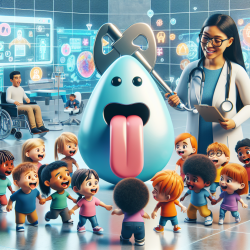As practitioners dedicated to supporting individuals with auditory processing disorders, it's crucial to continually refine our therapeutic approaches based on the latest research. A deeper understanding of the neurobiological underpinnings of these disorders can significantly enhance our ability to tailor interventions that address the specific needs of our clients. The research article, "Peer Commentary on 'Neurobiology Relevant to Some Central Auditory Processing Disorders,'" offers valuable insights into the neurobiology of auditory processing and its implications for therapy.
The article delves into the complexities of auditory neurobiology and its relationship to deficits in auditory processing, with a particular focus on the impact of cortical damage. One key area of discussion is the phenomenon of word deafness, where individuals demonstrate deficits in temporal processing, highlighting the importance of temporal cues in auditory perception and language comprehension. This insight can inform therapeutic strategies by emphasizing temporal processing training in our interventions.
Additionally, the commentary explores recent findings on auditory processing in individuals with aphasia, suggesting that non-linguistic auditory processing impairments may play a more significant role in language comprehension than previously thought. This revelation encourages us to consider incorporating assessments and interventions that target non-linguistic auditory processing skills, potentially leading to more comprehensive and effective therapy outcomes.
The article also touches on the hierarchical nature of central auditory system processing, shifting from temporal coding in the auditory nerve to rate coding in the cortex. This transition underscores the complexity of auditory processing and the need for interventions that support the brain's ability to adapt and process auditory information across different levels of the auditory pathway.
For practitioners, these insights emphasize the importance of a multifaceted approach to therapy that considers the neurobiological aspects of auditory processing disorders. By integrating knowledge of auditory neurobiology into our practice, we can develop more targeted and effective interventions that address the root causes of processing difficulties, rather than merely treating symptoms.
Moreover, this research encourages further exploration and study into the neurobiological mechanisms underlying auditory processing disorders. As we deepen our understanding, we can continue to refine our therapeutic approaches, ensuring that we provide the most effective support possible to those affected by these challenging disorders.
In conclusion, the article "Peer Commentary on 'Neurobiology Relevant to Some Central Auditory Processing Disorders'" provides critical insights that can enhance our therapy practices. By applying these findings to our work, we can improve the outcomes for individuals with auditory processing disorders, helping them to navigate the complexities of auditory perception and communication more effectively. For those interested in exploring this research further and integrating its outcomes into their practice, I highly recommend delving into the original research paper.
To read the original research paper, please follow this link: Peer Commentary on "Neurobiology Relevant to Some Central Auditory Processing Disorders".










